Optus NBN ‘alternative’ on the way with 5G
Optus says it will roll out a 5G router from January that will offer some consumers a NBN alternative.
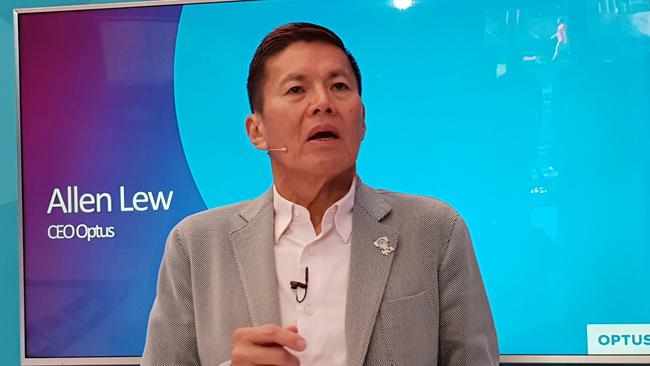
Optus says it will start rolling out a 5G router from January that will offer some consumers a National Broadband Network alternative.
During the Commonwealth Games on the Gold Coast, where it is hosting demonstrations of 5G technology, Optus CEO Allen Lew said that while first 5G mobile phones won’t be available until the latter part of next year, 5G-powered commercial fixed-wireless services are already viable.
“Standards for fixed-wireless access using 5G to provide, for example, 100 Mbps to a home, those standards have been set,” he said. “There is already a 5G commercial wireless router that can provide 100Mbps and that’s available and we will complete our testing and we’ll make it available to Australians from January next year.”
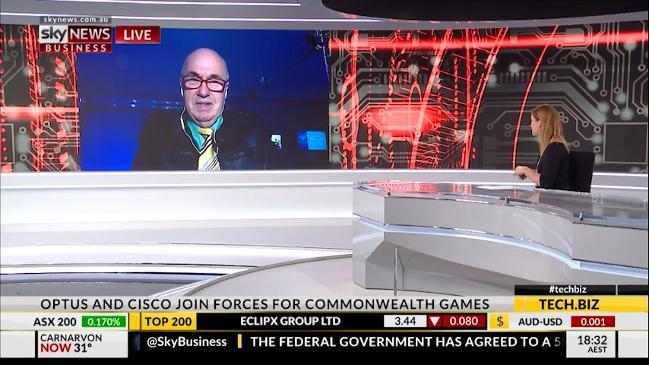
Mr Lew would not speculate if the router would be a competitor to the NBN. Conventional wisdom is that fast wireless would not cope if Australian users migrated to it from fibre en masse.
The shorter range of 5G may see it become a fast last-mile solution for the NBN from the node or kerb, to the home, rather than a ubiquitous cellular solution.
“At this stage of our developments, let’s not talk about whether it can replace NBN or not,” Mr Lew said when asked about 5G’s capability to replace the NBN. “We are still going through our technical trials, and once we can make a better conclusion about the speed, the consistency of the speed, the value of the latency of 5G, then we’ll come up with something a little more public.”
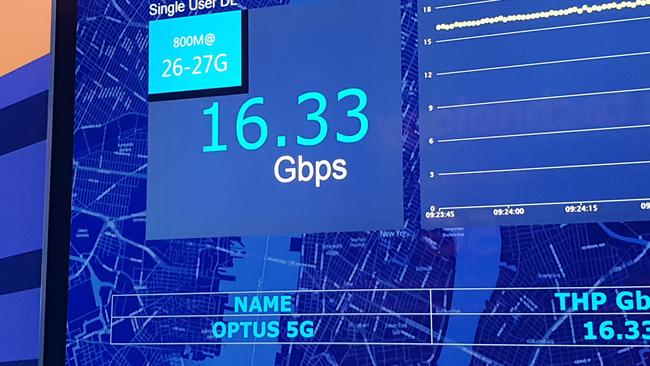
While Optus can offer fixed-wireless 5G at the start of next year, Mr Lew said we’re not likely to see 5G-capable phones until later. “The mobility applications will take more time. We believe the first mobile devices will probably come in the second half of 2019”. He said mobile phone makers had a way to go to create radios small enough to handle 5G communications.
The company is using its 5G live experience at Broadbeach to showcase two 5G scenarios. Very high frequency, short-range millimetre-wave 5G is delivering speeds of more than 16 gigabits per second in Optus’s display tent.
Another demonstration involved the C-band, 3.5GHz, broadcasting 8K video over 800 metres at about 2 Gbps, although the telco showed us only up to 400m away from the broadcast point.
The 8K display was mounted in a small truck that drove down the road from the broadcast point.
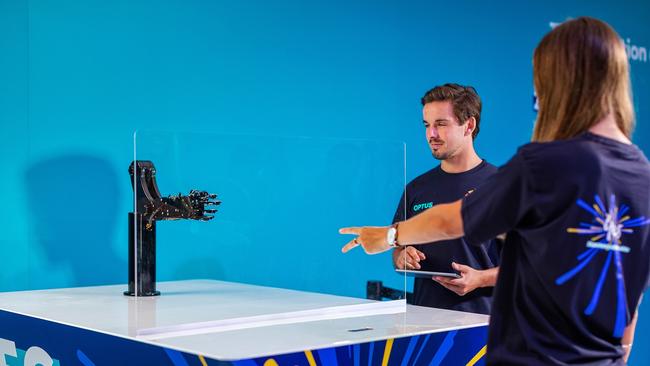
Mr Lew would not be drawn on which infrastructure providers would build its 5G network. In particular, it is unclear whether China’s Huawei, which partnered with Optus in the 4G rollout, will do so again with 5G. Nor would he be drawn on where the initial 5G rollouts would take place.
In the enterprise space, Optus sees the very low latency (tiny delay) of 5G as a winner. Lower latency would make remote surgery possible as your intended actions would be executed in real time, and relayed back to you almost instantaneously.
In mining, operators will be able to use machines and drive transport again in real time. Optus said its backhaul would have to cope with a latency of less than 5 or 10 milliseconds.
Optus is offering half a dozen 5G experiences at the games. With rock-paper-scissors, sensors transmit human hand movements over 5G to a robot hand that reacts far more quickly than people — and never loses.

Its virtual reality demonstrations involve detecting movements in the real world and, using 5G, integrating them instantly into a VR setting. In one demonstration, 5G wirelessly transmits a soccer ball’s movements to a goalkeeper who sees it and catches it in virtual reality.
Another VR experience lets you control a model car travelling around a miniaturised Gold Coast circuit. Again you control it from within virtual reality.
The piece de resistance is a viewing dome that displays a 360 degree underwater view of the aquatic centre pool where competition swimming has been taking place. The whole 360 degree view in Southport is transmitted by a combination of fibre and a short-leg single 5G channel.
Dennis Wong, manager of Optus Networks, said the telco would continue to invest in improving 4G access in regional areas as well as roll out 5G.
Optus has been supplying wireless communications to athletes, officials and broadcast media during the games. That network will be available publicly after competition ends.
Chris Griffith travelled to the Optus 5G live demonstration at the 2018 Commonwealth Games courtesy of Optus.

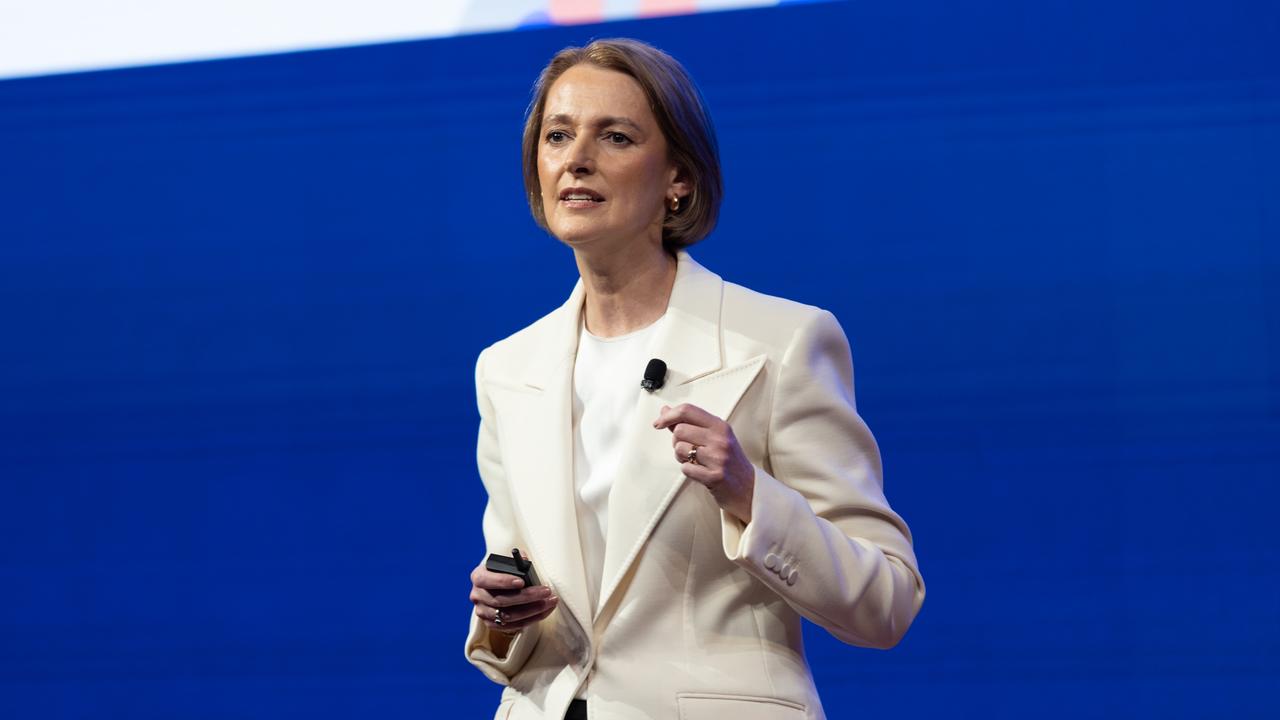

To join the conversation, please log in. Don't have an account? Register
Join the conversation, you are commenting as Logout